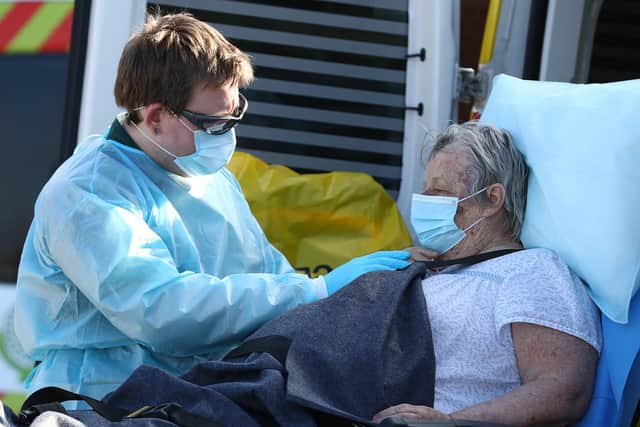Sheffield researchers to conduct new study that sheds light on COVID-19 care home deaths
and live on Freeview channel 276
The coronavirus crisis hit care homes hard with data from the Office for National Statistics showing that the number of deaths in care homes doubled in April – at the peak of the pandemic – with 4,927 deaths by week ending April 10 compared to 2,471 in the month previous.
A team of researchers, including experts from the University of Sheffield’s Centre for Urgent and Emergency Care Research (CURE) aim to analyse data to gain a clear picture of how Covid-19 patients were managed in care homes across the nation.
Advertisement
Hide AdAdvertisement
Hide AdThe study will focus on care homes in North East England – which had the highest proportion of care homes affected by coronavirus cases in the country – analysing how 68 care homes dealt with the crisis and more than 2,500 residents which were effected.


Lancaster University will lead the research which aims to help guide the government and care home managers in future crises and provide information on care home residents linked with their health service record.
It will enable researchers to analyse linked care home, community, hospital emergency department data from both before and after the easing of the lockdown period.
Professor of Emergency Medicine at the University of Sheffield’s School of Health and Related Research (ScHARR) Suzanne Mason said: “We will be bringing our knowledge and expertise to bear out the experiences and outcomes of care home residents once they have contact with emergency services.
Advertisement
Hide AdAdvertisement
Hide Ad"We hope the outcomes of this important study will inform how we improve the management of care home residents in future pandemic outbreaks.”
Chair in Applied Data Science at Lancaster University and Principal Investigator on the project Professor Jo Knight added: “The Covid-19 pandemic hit our care homes hard and many residents sadly lost their lives.
"Our objective is to utilise this novel dataset and evaluate the impact of the pandemic on the care sector and health service provision.
“Our insights will provide robust evidence to inform policy decisions, actions and measures that can be taken to deliver the effective, safe management of care home residents if and when virus outbreaks happen in the future.”
Advertisement
Hide AdAdvertisement
Hide AdThe 12 month £252,000 project, which has been funded by the Medical Research Council as part of UK Research and Innovation, brings together researchers from the University of Sheffield, County Durham and Darlington NHS Foundation Trust, Durham University, Leeds University and Newcastle University.
Experts hope to address research gaps identified by SAGE, the government’s Scientific Advisory Group in Emergencies, and seek to understand if Covid-19 patients were managed differently to normal circumstances.
It will also discover, through interviews with staff and clinicians, how decisions were made about whether ill residents were transferred to emergency departments in hospitals.
Researchers hope to find out if residents displaying Covid-19 symptoms were transferred back from hospitals to care homes during this period.
Advertisement
Hide AdAdvertisement
Hide AdExperts will also analyse how different care settings took different decisions and implemented different management strategies, and how that affected the number of deaths.